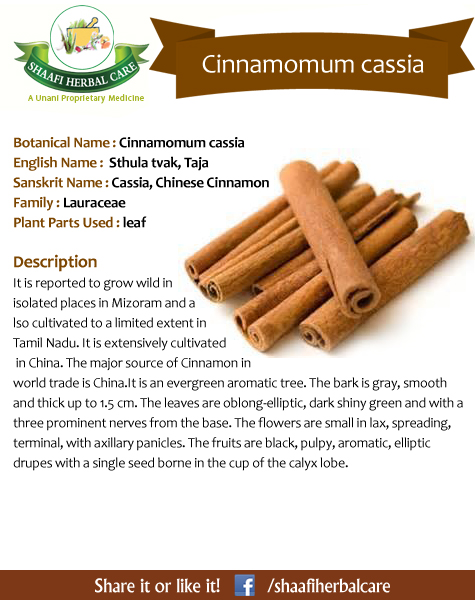
Health Benefits
Both types of cinnamon have health benefits, including the following.
1. Diabetes. Recent studies have found that cinnamon may help control blood sugar levels. In 2003, for example, Diabetes Care found that people with type 2 diabetes who took 1, 3, or 6 grams of cinnamon reduced their fasting blood glucose levels by 18–29 percent, and also reduced triglycerides by 23–30 percent. It also reduced LDL cholesterol by 7–27 percent, and total cholesterol by 12–26 percent.
2. Alzheimer’s Disease. According to a 2009 study, extracts of Ceylon cinnamon inhibited the formation of the proteins and filaments that are the hallmark of Alzheimer’s disease. Researchers isolated a certain flavonoid (proanthocyanidin) from the cinnamon and determined it had the majority if the inhibitory properties.
3. Cancer. One animal study found that a particular component in cinnamon impaired the proliferation of cancer cells and slowed tumor growth. A second study published in 2010 also found that cinnamon extracts were directly linked with anti-tumor effects.
4. Anti-inflammatory. A study from South Korea found that compounds from cassia cinnamon had promise as an anti-inflammatory agent, with potential in treating dyspepsia, gastritis, and inflammatory diseases.
5. Anti-microbial. Several studies have indicated that cinnamon has the ability to fight off bacteria. One published in 2007, for example, found that even low concentrations boosted the activity of antibiotic “clindamycin.” Study authors wrote that the results suggested that cinnamon could be used in combination therapy against certain stubborn strains of bacterial infections.
Other Health Benefits?
As far as other health benefits related to cinnamon, such as weight loss, the research is still limited. A scientific analysis published in 2010 reviewed the studies published to date, and concluded that cinnamon has anti-inflammatory, antimicrobial, antioxidant, antitumor, cardiovascular, cholesterol-lowering, and immunomodulatory effects. It added that animal studies have demonstrated strong blood-sugar-lowering properties, and that cinnamon as an adjunct to the treatment of type 2 diabetes is a “most promising area.”
As to the different types of cinnamon, and which is healthier, we talked about that in an earlier post. Bottom line: there is simply more research on cassia, but that really doesn’t mean anything at this point because we’re lacking studies. Hopefully we’ll have more research as time goes on. For now, realize that Ceylon cinnamon has less coumarin and tastes better. Cassia has some unique compounds that have been studied and may be beneficial to health, but Ceylon, which has been studied less, may or may not have similar compounds as well. Future research may reveal more about both types.
Meanwhile, you don’t have to wait for science to catch up! Cultures around the world have been using mainly Ceylon cinnamon medicinally and as a flavorful spice for thousands of years. You can’t go wrong by adding more to your diet.


